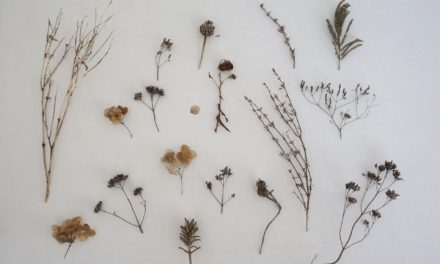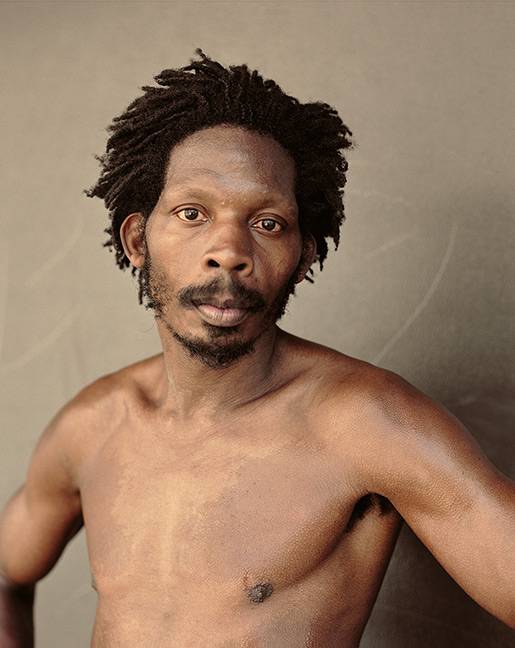Visitation
by Neil Connelly
It’s Clayton’s weekend with his girls (once a month, as per the agreement) and things aren’t going well. Nikki, 13, is sulkier than usual and Laura, 9, seems to be taking her big sister’s lead. For the better part of two hours this Saturday night, he has suffered through a 3-D supernatural teen romance involving witches, warlocks, and a plucky dragon that gives advice on listening to your heart and finding true love. Still, sitting between them in the darkness, with an eight-dollar bucket of popcorn on his lap, Clayton savors his daughters’ laughter. In the theatre, he doesn’t feel bad and that feels pretty good, and for now, all this seems like a blessing.
Since Miriam dropped them off yesterday at the Red Robin on Carlisle Pike, it’s been an ordeal. He made a mistake right away by asking if she wanted to join them, and following that curbside rejection, the girls couldn’t find anything on the menu they really wanted to eat. After sleeping in all morning, they asked to go to the mall, and as they wove through the crowd, wandering from clothing store to clothing store, Clayton trailed them at a distance, stalker-like. His planned visit to the corn maze got rained out, but there was a minor victory at the Farmer’s Market, with its organic fruit smoothies. Later, they spent a couple of hours at the library, where Laura read a book about a crime-solving cat and Nikki worked on a project for her religious education class. In the last couple months, as she’s begun to prepare for Confirmation, she’s apparently had a resurgence of faith. Miriam told Clayton that their teen daughter demanded to be driven to a penance service last Saturday and wept all the way home. Clayton has decided it’s a reaction to the divorce, finalized two months ago after a six-month separation. He told Miriam that Nikki was just going through a phase. Things wouldn’t always be this way.
On the way home from the movie, Clayton tries to ignore the 3-D induced headache and envisions a round of cold pizza and a game of Scrabble. The girls sit silently in the back seat. He drives through Camp Hill, past the grocery store where he used to wheel them down the aisle at unsafe cart speeds, past the grade school he used to walk them to. The rent in Lemoyne, down along the river, is cheaper than in the borough. His community college instructor salary only goes so far.
The car is silent except for the voice of the GPS, which every thirty seconds or so chirps out. “Turn around,” the tinny female voice insists. “Make the next right and then take the highway.” At the dealership, they told Clayton it would cost over $500 to replace the malfunctioning system, which is perpetually trying to direct him to an unknown destination.
Trying to ease the tension, Clayton says, “I may try to get a second job as a chauffeur. Would you two be references?” The girls say nothing, and Clayton presses. “So what did you think of the movie? How many stars?”
Only Laura mumbles something like, “It was alright.”
Then Nikki clears her throat, pauses long enough for Clayton to make brief eye contact in the rearview mirror, and says to her sister, “Those witches had it wrong, trying to find the warlock of their dreams. They were ignoring the amazing powers they had all on their own. A woman doesn’t need a man to be complete.”
At this, Clayton loses his focus, cruises straight through a red light, and nearly gets T-boned by a minivan. The other driver blares on the horn as Clayton veers over the double line, cuts back into his lane, and then quickly pulls over, into a pile of leaves along the curb. Both his daughters finish screaming and he says, “Jackass! Damn it. Look girls, we’re fine. Everything’s okay.” It’s a sentence he wishes he could believe.
That line Nikki said about what a woman doesn’t need, he’s sure it’s something she picked up from her mother If she said this to her, Clayton thinks, there’s no telling what else his ex-wife has told his elder daughter. Traffic rushes by, and Clayton thinks of the manila envelope he stashed on top of the fridge, the one that came certified mail from Miriam two weeks ago. The GPS says, “Up ahead, merge right.”
At the apartment, both girls refuse more pizza, and though Clayton is starving, he decides to show solidarity. He offers soda, ice cream, and they shake their heads. He’s about to ask them if this protest is some kind of body image thing when Nikki says, “Can I have your wifi password?”
Clayton tells her it’s on the modem in the only bedroom, and she disappears, pulling her new i-something from her pocket. Clayton sits down at the kitchen table across from Laura. “How about some Scrabble?”
She shakes her head.
“What’s going on in school? Third grade still as boring as when I went?”
She glances at the bedroom. “We’re working on multiplication tables. We have to know everything up to twelve times twelve.”
“Nine times seven,” Clayton fires out.
She hesitates, looks at a dusty ceiling fan for the answer. When she says “sixty-four” Clayton can’t hide his frown.
Laura’s shoulders drop and she hangs her head in that way kids do.
“I didn’t get to the nines yet.”
“We’ll work on them now,” Clayton offers, excited at the prospect.
Laura sighs. “It’s Saturday night.”
Clayton wants to ask her how she’s doing, if those sessions with the school counselor are doing any good, how she’s sleeping. He wants to ask about Miriam. But he knows any questions like this will turn his daughter into a stone wall. She asks, “Can I go see what Nikki’s looking at?” and Clayton realizes that his older daughter doesn’t plan on coming out of the bedroom. “Sure,” he says. “Whatever you want.” She bounds off, and he heads for the couch. After scanning the channels, he finds Penn State trailing Temple at the half.
Later, after the game ends in double overtime, after the girls have changed into their pajamas and brushed their teeth, after the light’s been off for an hour in his bedroom where they sleep, Clayton opens a non-alcoholic beer and reaches for the envelope on top of the fridge, then sits at his wobbly kitchen table. He slides out the forms and again he sees the ornate diocesan seal and the all caps title on the packet’s first page: “Petition for Prescribing the Nullity of Marriage.” Over the phone, Miriam explained to him that if granted, the annulment would mean they were never truly married in the first place, that they never formed the kind of bond married couples are supposed to as far as openness and honesty. Given recent events, Clayton has a hard time arguing with this. But he wonders if it was always this way, if even nineteen years ago he kept some crucial part of himself from Miriam.
The questions he’s supposed to fill out make his head swim. What traits first drew you to your spouse? On the day of your wedding, did you experience significant confusion or regret? How would you describe your honeymoon? The questionnaire is twelve pages long, eighty-nine questions. Clayton sips at the non-alcoholic beer and wishes he had something with a little more bite.
His bedroom door creaks open, and Clayton turns to see Nikki, stumbling towards him, rubbing her eyes. He turns the forms face down and sets his beer on the floor at his side. Instead of heading for the bathroom as he thought she would, she walks straight to the table and sits across from him. “Laura’s grinding her teeth,” she says. “She forgot her mouthguard.”
Clayton says, “That doesn’t sound good.”
“Nothing we can do about it now. But I can’t sleep in there.”
“Take the couch,” Clayton says. “I’ll be fine in the easy chair.”
They sit in silence. Nikki yawns. “What’re you working on so late?”
Clayton gathers the papers into a stack. “Just school stuff,” he says. “Another committee.”
He can see the lie register on Nikki’s face, and he shifts in his chair. “It’s paperwork for the annulment. Your mom told me you guys know she’s asked for one.”
“I do know,” Nikki says. “I keep wondering something. If the church decides you guys were never married, does that mean me and Laura are illegitimate?”
“No,” Clayton says. “Nobody’s going to—”
“Cause I mean, it seems kind of crazy that you can wave a magic wand and undo the past. That’s a pretty crazy thing.”
Clayton lifts the beer from his side and takes a swig. Nikki seems neither surprised nor upset, but when he sets it on the table, he turns the label to her so she can see it’s non-alcoholic. She says, “Does that mean I can have one?”
This is the longest conversation he’s had with his daughter in weeks, and he doesn’t want it to end. So he pushes his bottle toward her and says, “Just a taste.”
Nikki takes a sip and makes a sour face. “God, that’s horrible. If you can’t even get a buzz, what’s the point?”
“Habit, I guess. That’s not much of a reason.”
She shakes her head and puts the bottle down. “I won’t tell mom.” As she crosses to the couch and shakes out the quilt, Clayton both regrets and relishes this secret. He watches his daughter curl up, and reaches overhead to turn out the light. In the dark, Nikki says, “Tomorrow, maybe we could try the corn maze. I checked the weather before and it’s not supposed to rain.”
Clayton brightens at this unexpected request. Her voice is flat and without enthusiasm, but still, she’s projecting into the future and imagining them together. “You bet Nik,” he says. “Anything you want.”
“Great,” she says back. “We’ll go after mass.”
This too catches Clayton off guard. He hasn’t been to church for a year. But he realizes Nikki likely knows this, and he can’t find a reason to object. Also, the notion of a mass, with its rhythm and sameness, the singing and the ritual, settles on him in a pleasant way. He says, “Sounds good.”
In the shadows, Clayton shuffles to the Lazy-Boy and drags a thin blanket across his legs. From here, with the light from the street making the gauzy curtain glow, he can just make out the profile of his daughter’s face, and he thinks he can see her lips moving. He closes his eyes and can hear the quietest of whispers, or it may just be steam escaping from the radiator. Clayton decides his daughter is praying, and he wonders what she’s asking of God.
In the morning, following a failed attempt at Mickey Mouse/Snowman pancakes with blueberries, Clayton drives them out to St. Theresa’s. Nikki told him that Miriam always goes to the 10 o’clock, so he decides they’ll hit the 11:15. But he does arrive early enough to catch some of the late crowd heading home. He scans the departing traffic, hoping for a glimpse of his ex-wife.
Inside, they find an empty pew and he lowers the kneeler. In between his daughters, Clayton crosses himself and recites in his mind a perfunctory Our Father. “Daily bread,” he thinks. “Thy will be done.” He knows the words can have great significance, but for now, he’s saddened to find them somewhat empty. Similarly, during the readings he tries to concentrate and gather what wisdom he can, but meaning eludes him. When the priest delivers his sermon about Jesus’ forty days in the desert, Clayton tunes in. He’s hoping to hear how Christ stopped wandering, how he found a way out of the wilderness, but that never comes, and Clayton’s left with only the slim satisfaction of knowing that even the son of God could get lost.
During the offering, Clayton fishes out a few wrinkled dollars and tries passing them to Laura and Nikki, but neither one reaches for the money. “We’re not kids,” Nikki whispers.
Clayton, who’d meant it mostly as a nostalgic joke, nearly says, “Of course you are. You’re my kids.”
When the basket gets passed along the pew, he drops the cash in himself.
Not long after, he’s grateful for the “Peace of Christ,” as each of his girls leans into his open arms and embraces him. These hugs are usually reserved for goodbyes, forced and awkward in the driveway of the home where he used to live. But here, in the place with candied light slanting through stained glass windows, Laura seems reluctant to release him, and Nikki squeezes him tightly. He’s not sure what he should read into these embraces.
When the time comes for communion, Clayton follows Laura out into the aisle and marches along solemnly. As he nears the altar, he feels something tug at his shirttail and glances back to see Nikki, giving him a stern stare. He whispers “What?” and she raises her eyebrows but keeps her lips tight. The line moves forward, and Clayton proceeds, fumbling at the last moment when he can’t recall which hand covers which when he cups them to receive the Eucharist. The wafer, which he’d hoped might ignite insight, tastes as bland as he recalled, and he returns to their pew disappointed.
Outside afterwards, heading for the car, Nikki walks ahead of him ten, fifteen feet, with her arms crossed. Even Laura asks, “What’s her problem?”
Clayton shrugs.
It’s just over a half an hour drive to the corn maze. Laura reads her cat book and Clayton grows weary of the back seat’s stony silence. He tunes into a.m. radio, where the Baltimore Ravens pregame show is on. The starting quarterback is out with a bruised hip. The replacement, a rookie, is expected to have a rough time facing the opposing team’s legendary pass rush. The GPS urges Clayton, “Turn around as soon as you can.”
The Amazing Maize Maze (Acres of Fun For the Whole Family) is on an organic farm in the hills of Perry County. It’s the kind of place where you can pay to pick your own apples and blueberries. They pull into the slanted open field, following a slow stream of minivans, and pass a plywood board that lists the activities: Hay Ride = Free!; Pumpkins = $5 small/ $10 large; Pumpkin Catapult = $8; Haunted Barn = $9; Maze = $10. It’s quite a little cottage industry, Clayton thinks. Following the hand signals of a zombie farm boy, he parks by a pickup truck with kids spilling from the bed. They scurry for a makeshift petting zoo past the edge of the lot.
Laura opens her door and shouts, “Goats!” and she’s off. But Nikki stays where she is, so Clayton doesn’t move. Glancing in the rearview mirror, he sees her bowed head. It’s almost as if she’s praying. But the sense that he’s waiting for her judgment is palpable, and it reminds him of a similar sensation he often felt with his wife. He wants her to get it over with.
Nikki says, “You should really go to confession.”
Clayton grips the steering wheel hard, as if bracing for a crash. Behind them, a golf cart rolls past. Looking at the darkened dashboard, he speaks slowly. “Tell me exactly what your mother told you.”
After a few seconds, Nikki speaks up. “I’m talking about mass. When you went up for communion, that was a sin.”
Now Clayton turns to face her. “How was that a sin?”
“Dad. You’re divorced. You aren’t allowed.”
Clayton isn’t well versed in canonical law, but even the idea of this disturbs him. Still, he’s glad it’s not what he suspected. He searches for the right words, but the best he can come up with are, “Ok. I didn’t know that.”
“You should have,” she scolds. “St. Veronica says the path to God is paved with knowledge.”
“Who’s this now?”
“St. Veronica. She’s the saint I’m doing my project on. She cleaned Jesus’ face with a cloth and then His image appeared on it. The one whose name I’m taking for Confirmation? God dad. Do you ever listen to me? I told you all about this yesterday.”
She flings open the door and Clayton gets out on his side. He watches her storm toward Laura, who is leaning over a low fence and scratching a goat.
Hoping to turn the day around, Clayton goes all out Despite the crazy prices, he tells his daughters they can do everything, and they do. On the hayride, they rattle through a covered bridge spanning the Yellow Breeches Creek. In the haunted house, they are accosted by a headless woman with a pitchfork, which makes both girls leap for their father. At the pumpkin chucker, they catapult a pumpkin in a rainbow arc, easily a hundred yards, and when it explodes on impact, even Nikki says, “Cool.” All this time, she has not spoken to Clayton.
To buy tickets for the maze, they have to enter the overpriced country store. Laura wanders into the aisles of crocheted Bible covers and nickel-a-piece candy, while Clayton and Nikki pick up the tickets and decide on drinks. Clayton takes his black coffee to a bench beside an enormous gumball machine. Nikki drifts to the bench and sits at his side, holding a Styrofoam cup of hot cocoa. She says, “You can’t even be my sponsor, do you know that?”
Clayton thinks of AA, the three somber meetings he went to at Miriam’s insistence. But Nikki’s statement doesn’t make any sense. “Sponsor?” he says.
“For my confirmation. I’m supposed to pick like, some major role model who’s a killer good Catholic. But you’re not in good standing, so no matter what I think, they’d reject you.”
Clayton shrugs. He wants to say, “Can’t say I blame them,” but he doubts it’s the time for levity. Plus, the joke isn’t really funny. So he goes with, “I wish I could be your sponsor.”
She tilts the cup to her lips, warms her palms against the outside. “Why did you guys get a divorce?”
He’s shocked that, in all these months, he’s never been asked this. He looks away, toward the open door. “That’s something you might want to bring up with your mom.”
“I did. She said to ask you.”
Clayton worries the ticket in his hand. He scans the room. A chubby adolescent boy approaches the gumball machine, inserts his coins, and watches the gumball rattle through the mousetrap contraption before spitting out the bottom. When the boy leaves, Clayton says, “People grow apart.”
Nikki huffs. “That’s what the counselor said. That’s what Father Frank said. That’s what it says in the stupid book mom got me. I’m going to ask you again and if you say that, so help me I’ll scream. My life got ripped in sixteen pieces, and I deserve more than a lame-ass version of shit happens.”
“Don’t make a scene,” Clayton says, looking around at the milling customers. But when he turns to his daughter’s face, she seems supernaturally calm.
Nikki repeats her question. “Why did you guys get divorced?”
Clayton drinks the last of the bitter coffee. In a low voice he says, “I made some mistakes, is that what you want to hear? I made mistakes and your mom didn’t want to give me another chance.”
“What kind of mistakes?”
“Grown up mistakes. Enough of this.”
“So you won’t tell me what you did?”
He rises to his feet, and he can feel his heart thumping in his chest. Laura rushes into them, holding a tiny statue of a pig in a ballerina tutu. “Won’t mom love this?” she asks.
“I’ll buy it,” Clayton says as he snatches it from her. “Let’s head for the maze.”
Fifteen minutes later, Clayton is trudging through corn much taller than he’d thought it would be, over his head by at least a foot. For a while the three of them wandered the tiny corridors and tried to get into the spirit, getting spooked by a werewolf and a vampire, then an angel of death complete with scythe. As they walk along the narrowed path, he glances at the thick stalks, and they seem like bars. The girls are walking ahead of him, leaning into each other and whispering. Maybe they’re looking at the map, but he suspects Nikki is filling Laura in on what happened at the country store.
Above them, the sky has turned grey and dark, and the wind shivering the corn makes Clayton turn up his collar. He wonders what the score of the game is, and hollers, “Girls, let’s stay together.”
They take another right, then a quick left, and he hustles to catch up to them. “This isn’t a race, okay?”
“I want to get back to the car,” Laura says. “It’s cold.”
Nikki stops and consults the map. “I think we made a wrong turn. There should be a four-way intersection right here. From there, we should be able to take this shortcut.”
“Where’d all the other people go? How come I can’t hear anybody else anymore? Guys, I’m getting freaked out.”
“Nothing to get freaked out about,” Clayton insists. “We’re fine. Give me the map.”
After Nikki doesn’t hand it over, Clayton pulls it away. The maze is much more intricate than he’d thought possible. He can’t find the intersection Nikki mentioned or her shortcut. He listens and can’t hear the sounds of the farm. When he looks up to consult the sun, he finds it totally hidden by the grey sky.
“Tell me,” Nikki says. She stands right in front of him, and he knows what she means. “You don’t think I can guess? Why can’t you just say it?”
“If you know, then I don’t have to.”
“But you should. You should be honest with me and name it.”
Laura is rubbing her arms. “Guys. Don’t fight, okay? Let’s get out of here.”
A squadron of crows floats above them, shadow silhouettes. Nikki has not broken eye contact with Clayton. “You’ll feel better, Dad. There’s a reason they call it coming clean. St. Veronica, her name comes from the Latin word for truth. And just as she wiped away the dirt from Christ’s face, she said telling the truth wiped away the sins from your soul.”
Clayton considers his sins against the marriage, his failures as a husband. And he recognizes what he’s being called on to do now as a father. After a long silence, he says, “Sorry Nikki. I just can’t. One day you’ll understand.”
She takes the map back from her father. “I hope you’re wrong. I hope I never understand.”
Clayton is about to put his arms around her when, behind her, a large figure wearing a bloody hockey mask and holding an axe splits the corn stalk and charges their way, letting loose a blood-curdling cry. Clayton shoves Nikki to the side, steps into the attacker, and drives a fist into his masked face. The cheap plastic shatters, and the would-be killer crumbles to the ground.
Laura, screaming, sprints back the way they came.
Sitting in the dirt, the teen cups both hands to his face. When Nikki says, “Are you alright?” he pulls his hands down, revealing a thin stream of blood running from one nostril.
Clayton says, “Nikki, go get your sister. I’ll take care of this guy.” He bends to help him up and the kid shrugs free. “What the hell old dude! You hit me.”
“I’m sorry,” Clayton says, and with those words he turns to see if Nikki heard him. But she’s already disappeared on the trail of her sister, calling our her name.
The kid gets to his feet and says, “Where’s my axe?”
Clayton locates it and gives it to him. The kid says, “This hurts like a bitch. I gotta go find some ice.”
“I’ll help you,” Clayton says. “Just let me get my daughters.”
“Screw your help, man,” the kid tells him, and he strides directly into the corn, like a ghost disappearing into a solid wall.
Once he’s gone, Clayton can hear Nikki yelling “Laura!” and then he hears Laura yelling, “Nikki! Over here!” He walks toward the sounds but comes to a dead end. Their shouting seems distant, echoed. He pushes into the corn itself, forcing the stalks out of his way. “Girls!” he hollers. And now he begins to march more quickly, urgently, pausing every few steps to try and hear them again, to get his bearing. He yells, “Stay where you are!” but has no idea if they hear him. As he rushes blindly, he vows to come clean. He’ll fill out the annulment forms and go to confession. He is suddenly eager for penance.
He stops, chest heaving with exertion, and turns to where he thinks his daughters are. But their cries have grown weaker, faded to almost nothing. Until finally, Clayton’s not sure if he’s hearing them at all, or if maybe the sound is just the memory of their voices.
Before returning to his home state of Pennsylvania, where he teaches writing at Shippensburg University, Neil Connelly directed the MFA program at McNeese State in Lake Charles, Louisiana. He’s published over a dozen short stories and five novels, including The Midlife Crisis of Commander Invincible (LSU Press) and The Pocket Guide to Divorce: A Self-help Work of Fiction (Gorsky Press). His collection of short stories, In the Wake of Our Vows, is forthcoming. More about Neil Connelly can be found at www.neilconnelly.com.






